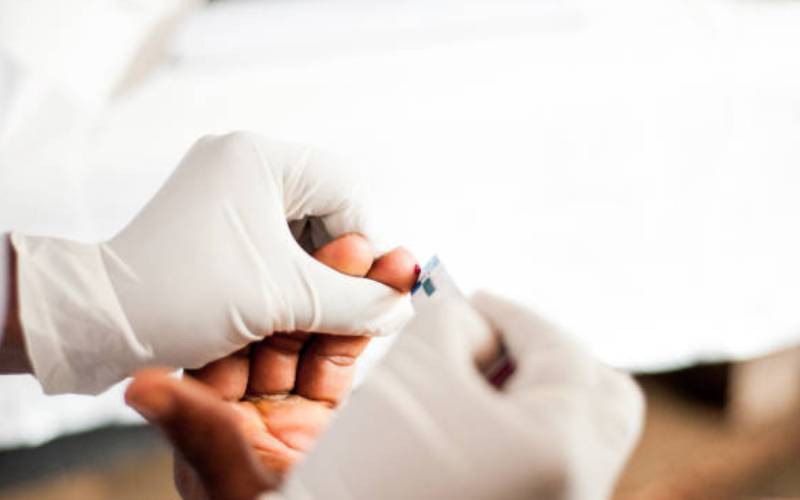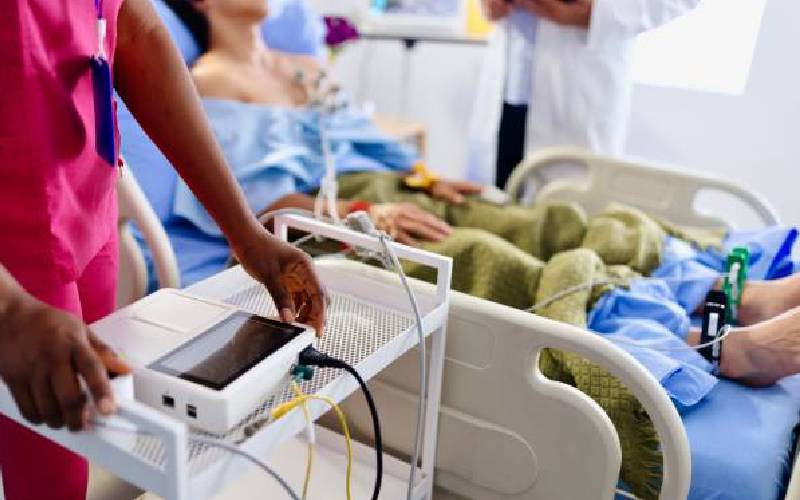
The new Moi Teaching and Referral Hospital (MTRH) Chief Executive Officer, Philip Kirwa, was a skinny boy who walked to school barefoot in remote Nandi county.
Dr Kirwa was appointed MTRH CEO last Friday, replacing Wilson Aruasa, whose term officially ended late last year.
Kirwa joined MTRH as a medical intern in 1996, and 28 years later, he became the hospital’s CEO.
Kirwa, who has been the acting CEO, was officially welcomed by staff in a ceremony dominated by song and dance.
Being a staunch Catholic, Kirwa was accompanied by three priests who led prayers during the ceremony.
The reception almost erased the new CEO’s rise from humble beginnings in Lessos village to the helm of one of the country’s largest referral hospitals.
MTRH is a level six facility, alongside Kenyatta National Hospital (KNH) in Nairobi.
"In the 1970s and early 1980s, when he was in primary school, the nearest school, Terige Primary School was six kilometres and one had to run there barefoot," Kirwa said.
Together with other children, Kirwa said he ran through forests during the rainy season to and from school.
“There were no watches, and you would use the sun to time yourself from school. But I didn’t lose hope. Secondary school was my first time in a boarding facility,” the surgeon said.
After completing his primary school education in Terige, he proceeded to Mother of Apostles Seminary Secondary School in Eldoret, where he spent four years before joining Kabarak High School for his A levels and completed in 1988.
“I was the top student in my class (in Kabarak), and I joined the University of Nairobi where I studied Bachelor of Medicine (Surgery) and graduated in 1995,” said Kirwa.
“We were at the university for a long time because of many strikes and unrests those days, occasioned by the structural adjustments programmes of the World Bank around 1992 and 1993. There were a lot of challenges at the university,” added the new CEO
After graduating from UoN in 1995, Kirwa joined the referral facility, which was then a district (an equivalent of a county referral) hospital, as an intern.
He became a medical officer in 1997 before he went to Nakuru Provincial General Hospital and later to Valley Hospital, where he became a resident medical officer, his record shows.
In the year 2000, he went back to UoN to do his masters in Obstetrics and gynaecology and completed it in 2004 and returned to MTRH, where he has been since.
“I have also done some management training. We look forward to the day when we will not have patients sharing a bed, especially with the support of the government building a new hospital in Kiplombe,” the new hospital CEO said.
He said the process of building a new MTRH in Kiplombe, on the outskirts of Eldoret town, would eliminate congestion.
“We call ourselves a world-class hospital. I want to take the hospital to real world-class status. We want to make MTRH a health tourism destination in the region. We want to avoid cases where patients go to India for specialist treatment when we have the potential to offer the same services at even more affordable rates,” the gynaecologist said.
He said training and retraining of specialists would be crucial under his management.
The CEO said he was also training his sights on increasing ICU bed capacity and enabling MTRH to handle kidney and bone marrow transplants.
The CEO will be managing at least 3,500 workers and double the number of patients in a single day.
“Industrial harmony has been our strength. Staff agitations affect services when they happen. We will work with staff closely and involve them in decision-making,” he said.
 The Standard Group Plc is a multi-media organization with investments in media platforms spanning newspaper print
operations, television, radio broadcasting, digital and online services. The Standard Group is recognized as a
leading multi-media house in Kenya with a key influence in matters of national and international interest.
The Standard Group Plc is a multi-media organization with investments in media platforms spanning newspaper print
operations, television, radio broadcasting, digital and online services. The Standard Group is recognized as a
leading multi-media house in Kenya with a key influence in matters of national and international interest.











